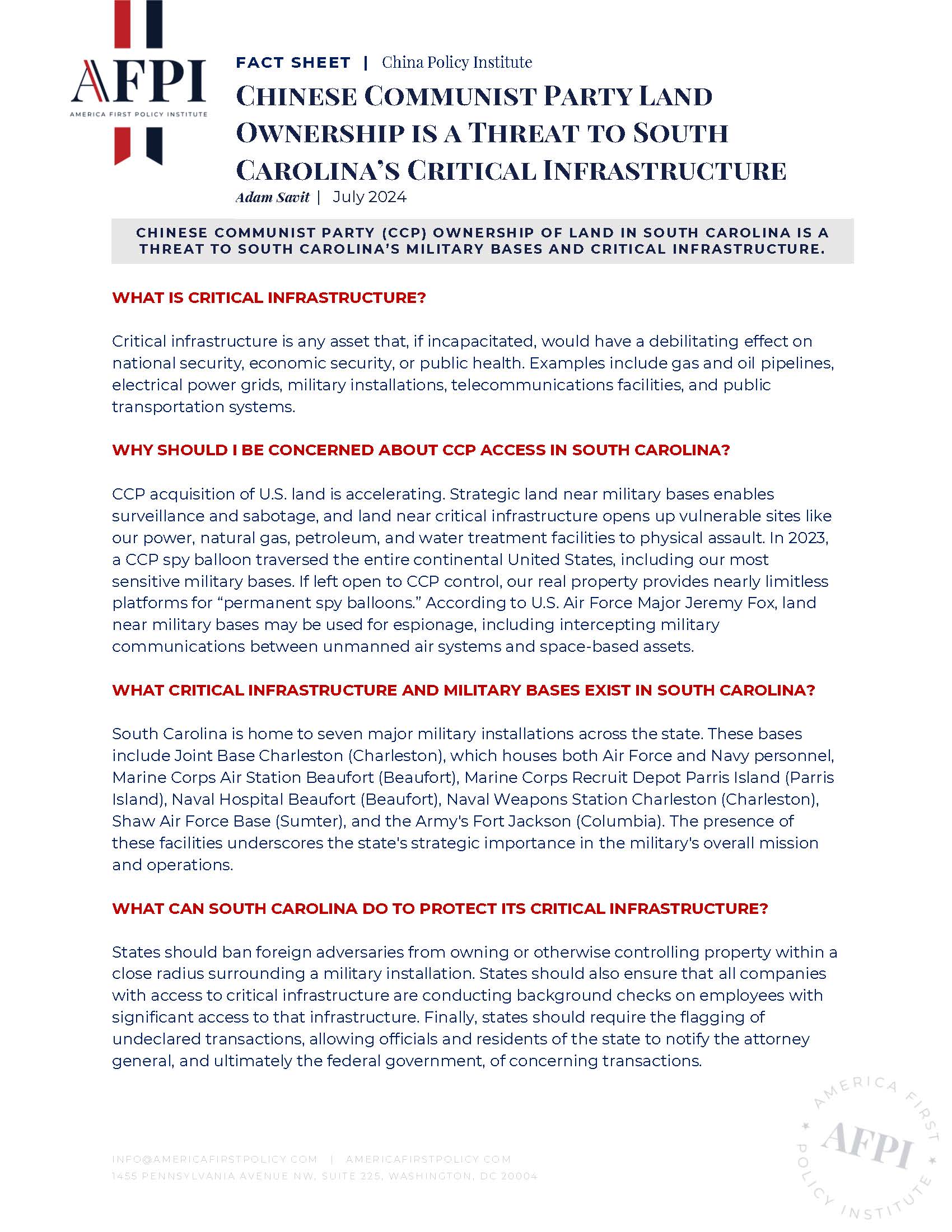America First Policy Institute
Chinese Communist Party Land Ownership is a Threat to South Carolina’s Critical Infrastructure
Chinese communist party (CCP) ownership of land in South Carolina is a threat to South Carolina's military bases and critical infrastructure.
WHAT IS CRITICAL INFRASTRUCTURE?
Critical infrastructure is any asset that, if incapacitated, would have a debilitating effect on national security, economic security, or public health. Examples include gas and oil pipelines, electrical power grids, military installations, telecommunications facilities, and public transportation systems.
WHY SHOULD I BE CONCERNED ABOUT CCP ACCESS IN SOUTH CAROLINA?
CCP acquisition of U.S. land is accelerating. Strategic land near military bases enables surveillance and sabotage, and land near critical infrastructure opens up vulnerable sites like our power, natural gas, petroleum, and water treatment facilities to physical assault. In 2023, a CCP spy balloon traversed the entire continental United States, including our most sensitive military bases. If left open to CCP control, our real property provides nearly limitless platforms for “permanent spy balloons.” According to U.S. Air Force Major Jeremy Fox, land near military bases may be used for espionage, including intercepting military communications between unmanned air systems and space-based assets.
WHAT CRITICAL INFRASTRUCTURE AND MILITARY BASES EXIST IN SOUTH CAROLINA?
South Carolina is home to seven major military installations across the state. These bases include Joint Base Charleston (Charleston), which houses both Air Force and Navy personnel, Marine Corps Air Station Beaufort (Beaufort), Marine Corps Recruit Depot Parris Island (Parris Island), Naval Hospital Beaufort (Beaufort), Naval Weapons Station Charleston (Charleston), Shaw Air Force Base (Sumter), and the Army's Fort Jackson (Columbia). The presence of these facilities underscores the state's strategic importance in the military's overall mission and operations.
WHAT CAN SOUTH CAROLINA DO TO PROTECT ITS CRITICAL INFRASTRUCTURE?
States should ban foreign adversaries from owning or otherwise controlling property within a close radius surrounding a military installation. States should also ensure that all companies with access to critical infrastructure are conducting background checks on employees with significant access to that infrastructure. Finally, states should require the flagging of undeclared transactions, allowing officials and residents of the state to notify the attorney general, and ultimately the federal government, of concerning transactions.
